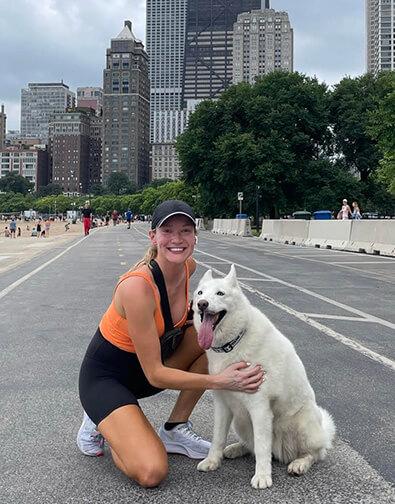Keep their tails wagging
Wellness Care for Dogs
At CityVet, we know how to care for your BFF from nose to toes. From dental care to nutrition and everything in between, we’ll make coming to the vet a treat for you and your pet.

At CityVet, we know how to care for your BFF from nose to toes. From dental care to nutrition and everything in between, we’ll make coming to the vet a treat for you and your pet.


Regular physical exams by a veterinarian are an essential part of a proactive and preventive approach for a healthy and happy dog. Wellness checkups play a key role in the early detection of serious illnesses, especially since our pets can’t tell us when there is something wrong. Dogs age more rapidly than people and therefore changes in health status may occur more quickly. We recommend general physical exams every 6 months, especially for pets older than 5 years of age.
These immunizations are recommended for all dogs regardless of life stage or lifestyle due to factors such as the likelihood of infection, the threat posed to the pet’s health, or the risk of transmission to humans (zoonotic potential).
These vaccines are given depending on your dog’s risk of exposure. Ask your veterinarian about the risks and benefits to determine a vaccine regimen that will provide the safest and best protection for your individual pet.
Your dog’s health depends on nutrition. The foods you feed your dog will have a life-long impact on overall wellbeing. We recommend feeding your dog a healthy food that is free of dyes, fillers and low-quality ingredients. Choosing a healthy food can be difficult, which is why we only carry healthy foods that our veterinarians feed their own pets.

Dental cleanings are recommended annually starting as early as 1 year of age for some small-breed dogs and 2 years of age for larger-breed dogs. Brushing your pet’s teeth regularly promotes good oral health.
We recommend that every pet be microchipped regardless of age. It can mean the difference in whether a lost pet is returned home safely. Microchipping is a simple procedure that can be done in the exam room or while under anesthesia for other procedures. Some cities require microchipping for pet registration.